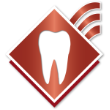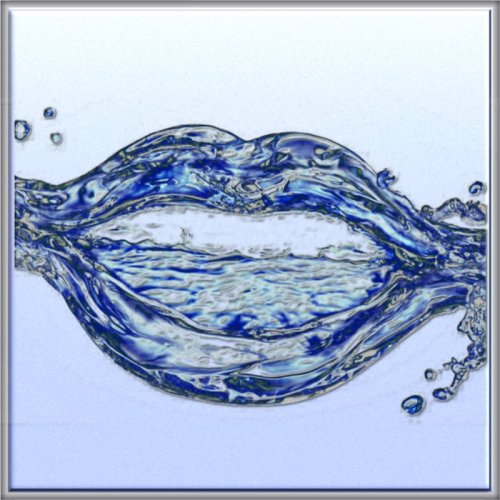
Introduction
Fresh breath is the most common reason to use mouthwash. But did you know that most mouthwashes might actually promote high blood pressure, gum recession, bad breath, digestive problems, or other oral tissue damage?
Bacteria have a bum rap. We blame them for infections, cavities, and bad breath. The truth is we would not be here without them, and it's important to our health not to kill them, but to tweak their growth patterns to our benefit. This podcast by "Ask the Dentist" goes into detail.
Many mouthwashes ride on bacteria's bad reputation and aim to kill. But this is a big mistake. Reducing bacteria will diminish some of their crucial benefits, like the generation of nitric oxide which is important for blood flow, organ health, and blood pressure. Reducing nitric oxide goes counter to our health goals.
Common ingredients in mouthwashes that are especially harmful are alcohol and detergents such as sodium laurel sulfate (SLS) or similar surfactants or emulsifiers. These can worsen bad breath long-term, cause oral cancer, and chronically raise blood pressure. But there are many other ingredients in commercial mouthwashes that should be avoided too such as fluoride, anti-tartar agents, artificial sweeteners, flavors, colors, carrier agents, and many more.
Killing bacteria in the mouth is a fool's errand. Think of a garden -- poisoning the soil to kill weeds will not produce the results you want. But aerating and watering the soil can help restore healthy balance.
Benefits of Mouthwash
Gum disease (gingivitis or periodontitis) can often be temporarily helped with an anti-bacterial mouthwash. This should certainly not be thought of as a primary or long-term solution because it fails to address the root causes. After a "deep cleaning" it is helpful to keep bacteria levels down so the gums can heal and reattach to the teeth. If you need a "deep cleaning," we'll provide a unique custom mouthwash for the healing phase as part of your treatment plan.
After oral surgery (extraction or implants for example) keeping bacteria levels low can minimize risks of infection. Typically, a pharmaceutical mouthwash of chlorhexidine gluconate (common brand name Peridex) is prescribed after surgery for this reason. But studies show that aloe is just as effective. Plus chlorhexidine is toxic and stains teeth.
Homemade Mouthwash
The best way to make sure your mouthwash is everything you want, and nothing you don't, is to make your own. There are many "healthy" commercial mouthwashes available, but none that I recommend.
The more mild the mouthwash, the better. Salt water, baking soda, or just some coconut or sesame oil are safest.
But if you need something stronger for short-term use after surgery or gum treatment, try this recipe. Get an 8 ounce glass jar and add:
- Half cup of aloe vera juice or aloe vera gel
- Half cup of distilled water or filtered water
- One and a half teaspoons of baking soda (Bob's Red Mill)
- Two drops of peppermint essential oil
- One drop of tea tree essential oil
Feel free to modify the amounts per your preferences, but stronger is not necessarily better. Shake and store in the refrigerator. Floss first, then brush, and lastly use the mouthwash for about 30 seconds twice a day.
Remember, mouthwash should be used temporarily only, if at all. Never use any mouthwash long term!
If using mouthwash right after surgery, be very gentle. Don't use your cheek muscles to swish. That's too strong for a fresh wound. Instead, use gravity to make gentle waves by tilting your head back and forth.
Biofilm
The main purpose for brushing, flossing, and tongue-scraping should be to disrupt biofilm. The keyword here is disrupt, not kill. By disrupting the biofilm, we force bacteria to regenerate it from scratch, effectively "freshening" it. This reset helps trigger healthy bacteria growth and function which improves breath odors. The physical touch of these tools is all we need. The motion of liquid during rinsing is not generally necessary to get the job done, with some exceptions.
With braces (brackets and wires) or with gum recession and large openings and traps between teeth, rinsing can help clean these areas. Again, there's no need to kill bacteria when rinsing, so water is sufficient.
When resetting biofilm, we especially want to pay attention to the very back of the tongue. Brushing and/or tongue-scraping the very back of the tongue will freshen the important biofilm there. This area is where most oral dysbiosis and bad breath comes from. Triggering your gag reflex when brushing the deepest area of the tongue is a common reaction, but with practice, this can be overcome. If gagging is really a serious issue for you, then you may have airway issues that should be investigated.
In conclusion, floss, brush, and scrape or brush the tongue -- especially the very back. There is no need and no benefit to killing oral bacteria. After all, they're there for a helpful reason. Remember, there are more bacteria in our body than human cells!

Categories: Products




